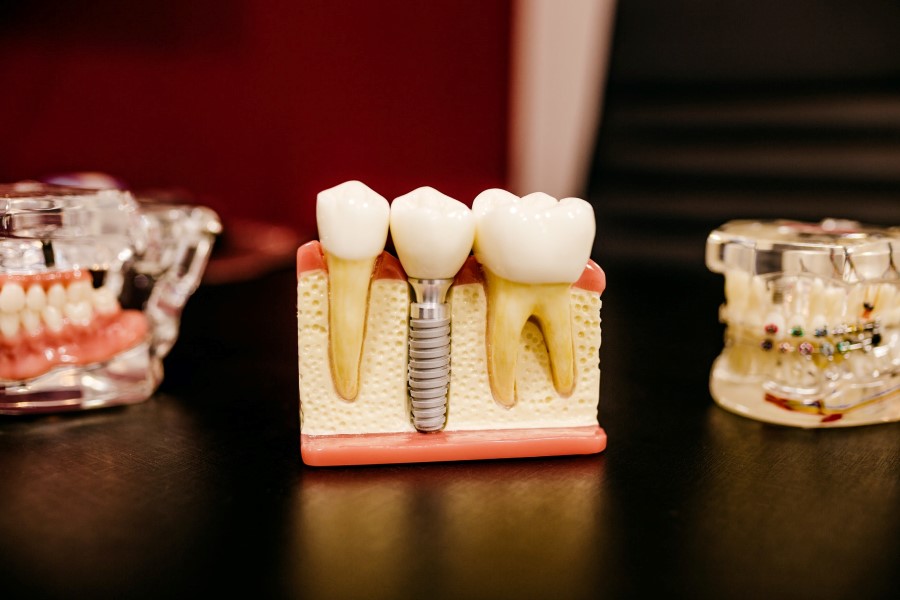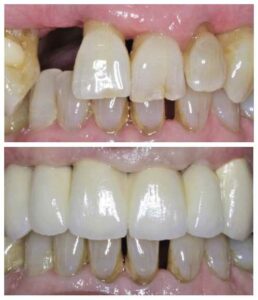How Much do Dental Implants Cost?
Dental implants deliver long-lasting solutions to missing teeth problems. They look and feel almost like natural teeth, making it possible to enjoy not only a beautiful smile but also properly functioning teeth for improved eating and chewing ability. However, most patients who are interested in dental implants may be hesitant to make an enquiry, due to the costs that may be involved in this solution for missing teeth.
The cost of a dental implant procedure may turn off people – which is unfortunate, given the significant benefits that can be achieved with this treatment. Discovering the factors that affect the cost of dental implants can shed light on what is involved in each treatment. Learning about these aspects can also make it easier to understand why a dental implant treatment costs the way it does – and how the end result of a smile restoration can truly be transforming.
Factors Affecting Dental Implants Cost
1. Number of Dental Implants to be Placed
The number of dental implants that need to be placed will significantly affect dental implant cost. If more dental implants are required to restore the use and appearance of a healthy smile, the cost naturally goes up as well. For example, at Artisan Implants, the cost of a single dental implant with a dental crown is £1,750, while two dental implants (to support three teeth) cost £3,750. Naturally, a treatment requiring multiple dental implants to restore an entire arch of teeth (in the upper or lower jaw) will cost even higher than a procedure involving two dental implants.
2. Material and/or Brand of Dental Implant Used
You might be surprised that even dental implants come in different brands that have corresponding price variations. In this case, the most popular brands have higher prices because they are also the most trusted by implant dentists worldwide – and they offer more reliable results compared to lesser-known brands. It is best to discuss with the implant dentist if there are different brand options that may be considered for the dental implant treatment, along with the benefits and drawbacks that each choice can deliver.
3. Diagnostic Scans
Part of the planning phase for a dental implant treatment involves getting scans of the mouth and jaw structure. The images that are taken by dental X-rays or CT scans will be used by the dentist to determine if the jawbone is strong or thick enough to secure the implants in place. The scans are also used to ensure a successful procedure, preventing complications from arising with the placement of dental implants.
4. Preparatory Procedures
Even before the actual placement of dental implants, there may be some procedures that need to be done first. These procedures ensure the success of the dental implant treatment, such as bone grafting to augment the jawbone. The preparatory steps may also be needed for dental problems that may need to be addressed first before the implants can be placed, such as the treatment of gum disease. Tooth extraction may also be required in cases where there are severely decayed teeth that still remain, and need to be removed prior to the attachment of dental implants into the jawbone.
5. Bone Grafting Requirement
Bone grafting is needed if the jawbone does not have sufficient mass to support the placement of dental implants. This procedure is mostly required for those who have suffered from tooth loss for a long period of time, with the bone gradually deteriorating with the loss of stimulation coming from the tooth roots. A bone graft works to add volume to the jawbone so that it becomes robust enough to hold the dental implants as well as the teeth replacements that will be attached. The bone graft material and the bone augmentation procedure will incur extra costs and will naturally add to the overall price of the dental implant treatment.
6. Number of Artificial Teeth Attached to the Implants
Just like the number of implants attached, the number of artificial teeth that will be used will also have an impact on the overall dental implant cost. As an example – the attachment of four replacement teeth on two dental implants will incur a considerably high cost compared to using a single dental crown that is attached to one dental implant.
7. Material of Teeth Restoration
The materials used for the teeth restoration will be considered in the final cost for the dental implant treatment. Different materials have their own set of advantages and weaknesses, and it is important to have a discussion about this with the implant dentist to ensure that you can get maximum benefits from the treatment.
8. Location of the Dental Clinic
In general, the cost of dental treatments becomes higher as you go towards the centre of big cities or financial/cosmopolitan districts. The higher cost of living, which includes utility and rent bills, will be considered, and may be passed on to the patient in the form of more considerable treatment costs. Meanwhile, the lower cost of living in smaller communities may be reflected in the lower dental implant treatment costs that may be offered in these areas – but this will still depend on the implant dentist and other factors.
9. Option for Sedation Dentistry
Aside from the local anaesthesia that will be administered to ensure a pain-free procedure, sedation dentistry may also be offered for the dental implant placement. The sedative may be inhaled or given through an IV line to promote a complete relaxation during the implant procedure, ensuring that the experience will be positive all throughout. The option for sedation techniques will add to the overall cost of the dental implant treatment but can offer maximum comfort and peace of mind, especially to those who have dental anxiety.
Artisan Implants Blackheath, London Pricing
See our up to date pricing here
We offer free consultation for Dental Implant treatments.




